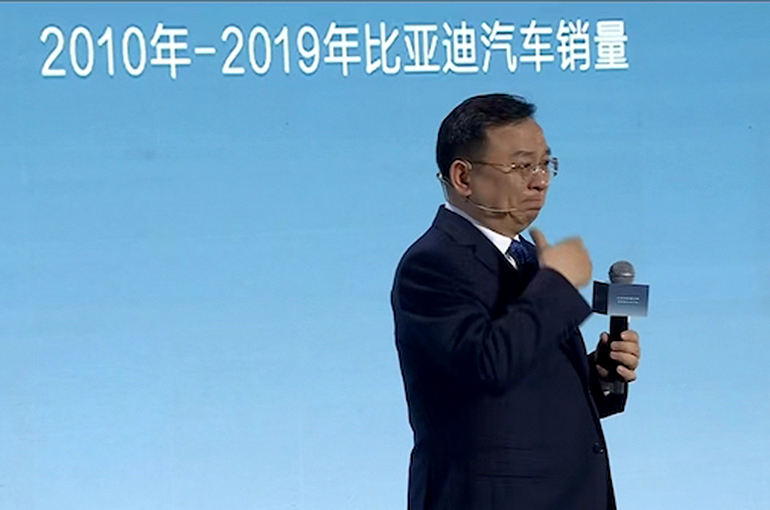 BYD Founder Wells Up as He Reflects on 20-Year Journey to Producing Five Million NEVs
BYD Founder Wells Up as He Reflects on 20-Year Journey to Producing Five Million NEVs(Yicai Global) Aug. 10 -- The founder of BYD was overcome with emotion when reminiscing on the 20-year journey taken by the Chinese car and battery giant to become the country’s best-selling new energy vehicle maker at an event held to commemorate the production of BYD’s five millionth electric car.
“When we said we wanted to branch into cars from batteries in 2003, we were met with ridicule and derision,” Wang Chuanfu, who is also chairman and president of the Shenzhen-based company, said yesterday as the firm’s five millionth NEV, a Denza N7, rolled off the production line.
When BYD took over Qinhuan Automobile in January 2003, its share price halved in Hong Kong to HKD9 (USD1.15), Wang said. The firm’s insistence in developing hybrid vehicles and batteries and the huge sums needed to fund research and development were called into question.
“We almost gave up,” Wang said. Due to the small market share of plug-in hybrid vehicles and the need for technological breakthroughs to develop them, there was much controversy even within the company as to whether the strategy was wise. Many other car firms that had tried before had failed.
BYD has invested heavily in the R&D of batteries and hybrid technology, Wang said. In 11 out of the past 12 years, the firm has spent more on R&D than it made in profit. In 2019, despite making CNY1.6 billion (USD204.6 million) in net profit, BYD still invested CNY8.4 billion in R&D.
But the investment has paid off. BYD retained its title as China’s best-selling NEV maker in July with deliveries jumping 61 percent year on year to 262161 units. From January to July, shipments surged 87.6 percent year on year to 1,517,798 units.
The rapid transition to NEVs is propelling Chinese automakers from followers to leaders, Wang said. By 2025, the market penetration of NEVs in China could exceed 60 percent. And the market share of Chinese brands is expected to rise to 70 percent from 50 percent over the next three years, he added.
In the first half, China sold one million plug-in hybrid vehicles, nearly double from a year ago. This is a big jump from 2018 when the country shifted 271,000 plug-in hybrid vehicles, accounting for 21.6 percent of all NEV shipments.
Editor: Kim Taylor